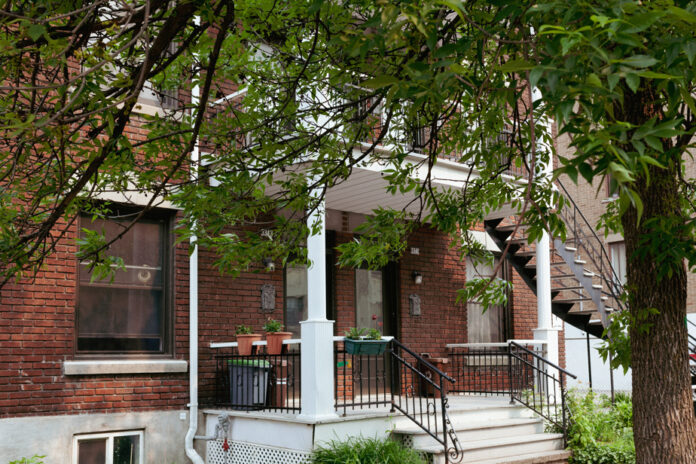The few apartments available for rent are offered at crazy prices, as are condos, houses and income properties that have increased enormously in value in recent years. In this real estate madness, housing cooperatives can be an interesting solution that deserves to be exploited.
There are 1,300 housing co-ops in Quebec. For Patrick Preville, general manager of the Fédération de l’habitation coopération du Québec (FHCQ), that’s too little. “I think over time, if we had allowed co-ops to grow, we wouldn’t be talking about 1,300 co-ops, it’s maybe 3,000, 5,000, 10,000 co-ops. A strong advocate of this housing model, Mr. Preville argues that over time, co-ops have been twisted and forced to live on their own, with no room to grow.
The director general of the FHCQ insists: housing co-ops, although they offer affordable housing, are not social housing. “NPOs and housing co-ops have two totally different missions,” he insists. Living in a coop means taking part in a community project, getting involved in your living environment, managing common property, having a common vision of sharing and quality of life. Residents are not simple tenants, they are members who take part in decisions, who are involved in the administration of real estate and living together.
Pierrette Trudel, resident of Village Côte-des-Neiges, the first housing cooperative in Montreal, knows something about it. “Living in a co-op is not just about sweeping a hallway or donating a couple of hours a week,” says the one who has invested many hours as a member and, for many years, as an administrator.
Because the concept is misunderstood, the development programs that have been set up over the years by the Société d’habitation du Québec (SHQ) have distorted the model of housing cooperatives and flouted certain basic values, including social mix.
Pierrette Trudel adds: “In the 1970s, when they offered the cooperatives subsidies to accept people who had financial and sometimes social difficulties, there was a kind of movement where the point one of the cooperatives, it was not It wasn’t participation, forming a mini-society, but it became welcoming people in difficulty, which meant that we lost our basic identity, in part. »
Although funding is a long time coming, Sandra Turgeon, director general of the Quebec Confederation of Housing Cooperatives (CQCH), says that a dozen housing cooperative projects are in the crosshairs, in addition to cooperative projects. of owners, a model that gives access to ownership. “What makes his unit affordable is that the back ground belongs to CQCH and its movement. 25% of the value is deducted from the price of each unit to ensure that it remains below the current price. It’s new, new,” she explains.
While the number of housing cooperatives is stable in Quebec, initiatives such as owner cooperatives should allow some growth in the coming years.















